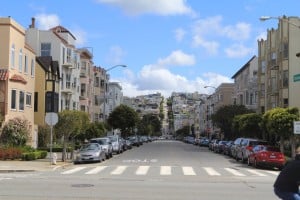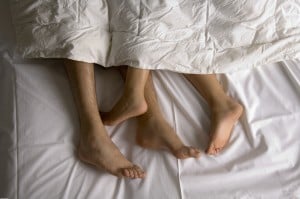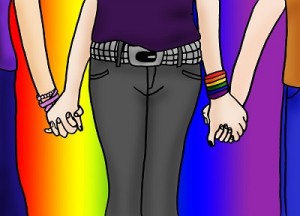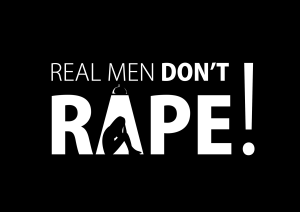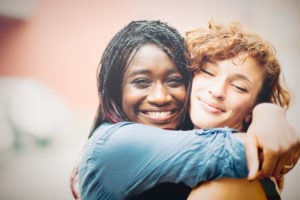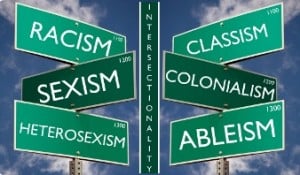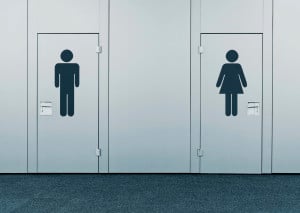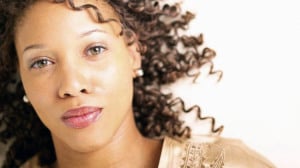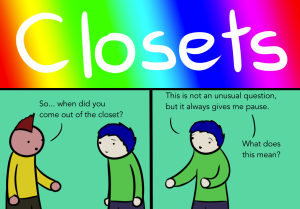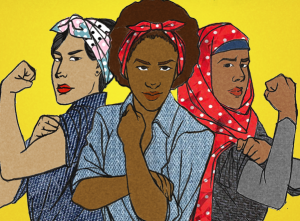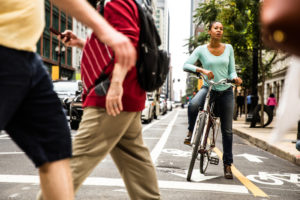
A cyclist waits at a light while pedestrians cross the street.
As a woman who rides her bike every day in a city, I feel like I’ve seen and heard it all. Not just from cars and pedestrians, but from other cyclists, too.
When I first decided to write this article, I thought I might be the only one having some of the following interactions. So I put my question out into the universe, and through some great organizations like the Recyclery, women responded with their stories.
It became clear that it wasn’t just me: Bicycling in a city, while liberating in many ways, can have its challenges – and the gendered experience of cycling as a woman adds another layer.
Cycling in the US is a pretty male-dominated activity. Whether cycling on trails or in the city streets, biking is something that tends to privilege men’s voices and experiences, as well as masculine-presenting bodies. Cyclists as a whole are often on the receiving end of frustration, aggression, and outright violence from cars on the road, and these interactions can also be gendered. Drivers’ and cyclists’ perception and assumptions of our gender often play a major role in our interactions.
Fearing for one’s safety due to distracted drivers, being targeted for street harassment, as well as the overall masculine-dominant culture around cycling are just some of the reasons why there are far fewer women cycling than men.
And yet, there are many of us. And we love biking. And we want our voices heard.
So what are women and feminine-presenting folks actually experiencing on the road? What are we sick and tired of hearing as we ride our bikes?
1. ‘Can I Ride Your Handlebars?’
Street harassment and catcalling take a new twist when you’re on a bike. Women riding bikes tend to be sexualized, leading to catcalls that always seem to be include some iteration of the ever-creative “riding” or “being ridden,” as well as whistles, honks, and even grabs.
Being on a bike doesn’t make us any less prone to street harassment. In some ways it makes us more so, because we are so visible.
At the same time, being on your bike while experiencing harassment can feel safer, as it gives you the ability to bike away from someone hurling these verbal assaults.
Fellow bicyclist Sneha said, “When I’m on my bike, harassment is annoying, but it rarely induces fear for my bodily safety the way it does when I’m walking on the street.” In contrast to being victimized on foot, a bike offers a quick get-away, and the opportunity to respond in a way you may not otherwise feel safe to do.
Street harassment can continue off the bike, too. Once, as I was pulling up on my bike outside of a grocery store, two men a few feet away began catcalling me. I tried to ignore them as I walked into the store. When I came back out, I found that the men had slit my tires, and were laughing as they watched my reaction a block away.
There is something particularly frightening to men, it seems, about a woman on a bike. Based on the historical relationship of cycling and the women’s movement, we can see that women riding bicycles has been considered by some to be “unladylike,” a “path to sexual depravity,” and the cause of medical problems such as infertility.
These fears are not unrelated to the ways in which cycling was and continues to be liberating for us. There’s a particular kind of bodily autonomy, freedom, and self-determination inherent in the act of bicycling, particularly for women and femmes. It changes our relationship to our bodies and our environment.
Just as street harassment and the larger rape culture in any other context serves to keep women afraid (and indoors, in the private sphere), harassment of women on bikes also seems to be a reaction to this public bodily freedom.
2. ‘Smile!’
We hear this one when we’re walking, too. But there is a particular frustration to being on the receiving end of this demand when you’re biking through the city. And apparently, men have been concerned about women’s faces while cycling since the 1880s.
I very rarely smile when I’m on my bike – which, by the way, doesn’t mean I’m not enjoying my ride.
But why should I worry about smiling, about making it seem as if I’m having a hilarious, whimsical time, while I’m working up a serious sweat biking up a hill or focusing on not getting doored by a parked car? Why should I make it seem as if I’m not doing something athletic, meditative, and badass by forcing a smile?
This kind of statement seems to question women’s ability to be deeply engaged in something in which they are perhaps not thinking only of how they look. It requests that we consider those who must look at us as we pass, that we show an effortlessness, passivity, and lightness, despite how inauthentic it may be.
It’s demeaning, distracting, and can be dangerous.
3. ‘Get Off the Road!’
Any urban cyclist will tell you that one of the most challenging parts of biking is managing the aggression directed at you from cars.
Distracted drivers are one thing – angry drivers are another terrifying problem altogether. I’ve experienced drivers honking, yelling, throwing things, making gestures, swerving, and driving within inches of me in a way that can feel life-threatening. Drivers seem to justify these aggressive behaviors with particular attitudes toward cyclists, including that cyclists are taking up their space.
There’s a sense of entitlement, wherein drivers perpetuate the idea that roads are for cars only. When combined with the power of controlling a large machine, this way of thinking can have deadly consequences.
But the thing is, cyclists are legally required to be in the road. And moreover, often when we’re cycling in a way that inconveniences drivers (like taking up a full lane), we’re doing it for our safety.
This power dynamic is not outside of a feminist discourse: In the ongoing “war” of bikes vs. cars, cars hold assumed power on the road in a way that is masculinized, while cyclists tend to be feminized.
We see this dynamic in action when drivers hurl gendered shouts of “bitch” or “pussy” at people of all genders on bikes, or when they drive much closer than the legal requirement of 3 feet of space – reminding us, intentional or not, that they have our lives in their hands. The combination of sexism and aggression is a dangerous one at that.
At the same time, femininity has its benefits here, too. Fellow urban cyclist Marie said, “I find that I get a lot more room from drivers when I present overtly as femme – dress, bright colors, no helmet – so I tend to bike in femme signifiers.”
Space is certainly a coveted benefit when it comes to bike safety, but it comes at what cost? We’re given more room because we’re viewed as weaker, less capable cyclists, and in need of protection.
With these dynamics in mind, cyclists rely on one another for support on the road, coming together for community events like Critical Mass. This is why it can feel so frustrating for women when we don’t feel supported by other cyclists.
4. ‘Be Careful.’
While perhaps well-meaning, statements like this from male cyclists really get under my skin.
I first heard it when I had been biking for a month or so. A guy on his bike came up behind me and spent several minutes telling me why I should be in a different lane. Another time, a guy stopped next to me at a stop light, leaned over to me and said, “Hey, be careful.”
Both instances left me doubting myself and my ability, and wondering if they would have said those things to other men.
“Mansplaining” the rules of the road or concerns for safety is, unfortunately, a larger normative dynamic of simply being a woman in our culture. And when it comes to biking, something that often makes us feel strong and confident, these interactions can make us feel small.
And there’s research to back this up: the insidiousness of benevolent sexism has dangerous psychological consequences for us.
5. ‘Can’t Your Boyfriend Help You with That?’
There’s another set of interactions we have with male cyclists, both on and off the bike, that goes beyond mansplaining cycling, but feels more like condescension and “faux kudos,” as Dinah, a cyclists in Chicago calls it.
We often have to battle the ridiculous notion that we couldn’t possible know anything about our bikes, that our “boyfriends” or other male figures in our life must be doing any bike work for us.
Sneha shared this story:
I once went to a bike store and the dude who worked there was super patronizing, and would talk mostly to my (male) partner instead of me. When I picked out a pair of lights to buy, he said something like, “Don’t worry, your boyfriend will help you put those on,” as though I were completely helpless.
Dinah shared how frustrated she feels “when some asshole who can’t change his own flat stares at my set up and starts giving me suggestions, like [she] didn’t build [her] bike from the frame up by [herself].”
6. ‘Fragile Male Ego On Your Left!’
Okay, okay, they never actually say it this way – but far too often, the very polite passing cry of “On your left” from men can feel more like a claim of masculine dominance, or at least of a fragile ego.
Sometimes I’ll be riding along, heading to work, when a guy on his bike races past me. But he’s not faster than me, because he slows down to his own pace once he’s ahead of me. And when I pass him (because, again, I’m just trying to get to work), I can hear him huffing and puffing to get past me again.
There’s nothing wrong with passing cyclists – we’re all at different riding at speeds and that’s okay. But there’s this particular phenomenon that people read as women experience, where that guy trying to pass us isn’t just doing it because he’s faster.
He’s doing it because, in his mind, he must be faster. He’s a man.
Marie shared this:
Some guys have a serious complex about me moving faster than them… What happens is, I usually pass them at some point, just minding my own, and they’ll shoal at a light and then spend the next two miles frantically pedaling to stay ahead of me, looking back every minute to see how far back I am.
This interaction is deeply rooted in our culture’s need for a performance of masculinity, and it leads to the very common dismissal of women cyclists as not fast or capable, or not “real” bikers. It’s also about our bodies, and is not unlike the dismissive treatment of women athletes in many other kinds of physical activity.
7. ‘You Don’t Look Like a Biker.’
Unfortunately, women and femmes are far too used to experiencing criticism and shame when it comes to our bodies. And our choices around particular physical activities are often judged as they intersect with how our bodies look.
Alongside weight, fitness and gear, gender performance plays a role – ideas pervade that one can be “too feminine” to ride a bike or that, by riding a bike, one is “not feminine enough.”
While biking in a skirt or heels or other feminine signifiers can sometimes be challenging in a practical sense, these things don’t make a person any less capable of riding a bike at any speed, and the femme-shaming that tells us we can’t stem from a larger culture of misogyny.
There’s also a kind of gender and body policing that happens in riding. Comments, looks, and interactions perpetuate the dynamic of whose bodies are considered “cyclist bodies.” And these interactions can be even harder if you don’t fit easily into others’ ideas of how you should be presenting your gender.
Race also certainly can intersect here. While biking as a White, cisgender woman is challenging, being perceived as gender non-conforming and/or as a person of color can significantly increase the aggression and assaults received from cars as well as exclusion from other cyclists.
So Then… Why Ride a Bike?
Despite the kinds of interactions we have with some drivers, pedestrians, and other cyclists – ranging from the subtle and benevolent to the overt and hostile – I wouldn’t stop biking for anything.
Sometimes when I’m biking fast through the streets of Chicago, I feel like I’m meditating. I feel connected to the road and am singularly focused and tuned into everything happening around me, whizzing past cars and people and anticipating their moves three steps ahead. I feel free, strong, independent, and confident.
In a world that tries to disconnect us from our bodies and our autonomy at every turn, biking is one activity that continually brings me back to my body. And I’ll keep doing it despite whatever comes my way.
But I want more femmes on the road with me. I want more of us, standing in our grace and strength and dressing exactly how we want and biking at exactly the speed we choose without worrying about harassment. I want us to claim the streets as a space we have a right to occupy, as a place in which we belong.
The issue also extends to how we use our roads, and the very serious need for more legislation protecting cyclists while promoting public awareness around cyclist’s needs for safety and respect from everyone on the road.
There just aren’t enough conversations about what we’re experiencing on the road (and when it is, so much of it seems to be about fashion and gear). We need feminist spaces in the cycling world, and we need to talk about cycling in our feminist spaces.
By speaking about our experiences, we can build support in numbers, connecting women and allies in solidarity on the road.
Check out these great feminist cycling organizations, and let’s see if we can build more:
And here are some books on the topic:
- Urban Revolutions: A Women’s Guide to Two-Wheeled Transportation
- Our Bodies, Our Bikes
- Cycletherapy: Grief and Healing on Two Wheels (Journal of Bicycle Feminism)
- Women on Wheels: A Handbook and How-to For City Cyclists
- Feminist cycling zines
[do_widget id=’text-101′]
Laura Kacere is a Contributing Writer for Everyday Feminism and is a therapist, yoga teacher, and pit bull mama living in Chicago. Laura moved to Chicago to study mental health after years of reproductive rights activism in Washington, D.C. She is passionate about about working at the intersection of feminism, mental health, and the body. When she isn’t working or on her mat, she’s usually watching Buffy, eating deep dish pizza, and wishing she had more string instruments. Follow her on Twitter @Feminist_Oryx. Read her articles here.
Search our 3000+ articles!
Read our articles about:
Our online racial justice training
Used by hundreds of universities, non-profits, and businesses.
Click to learn more





